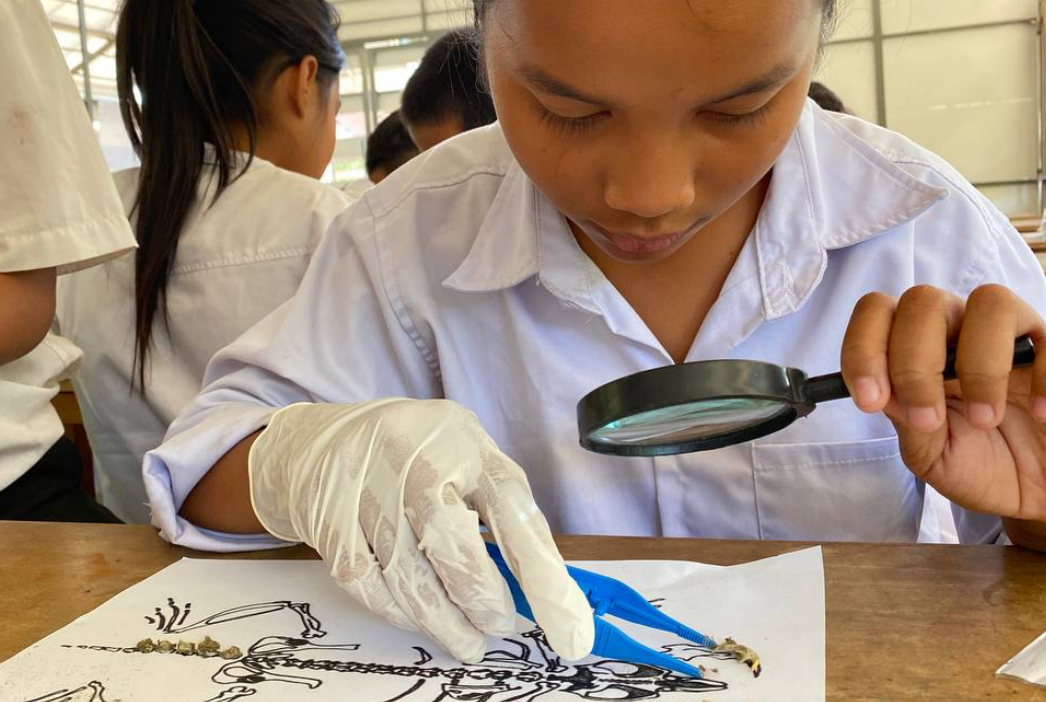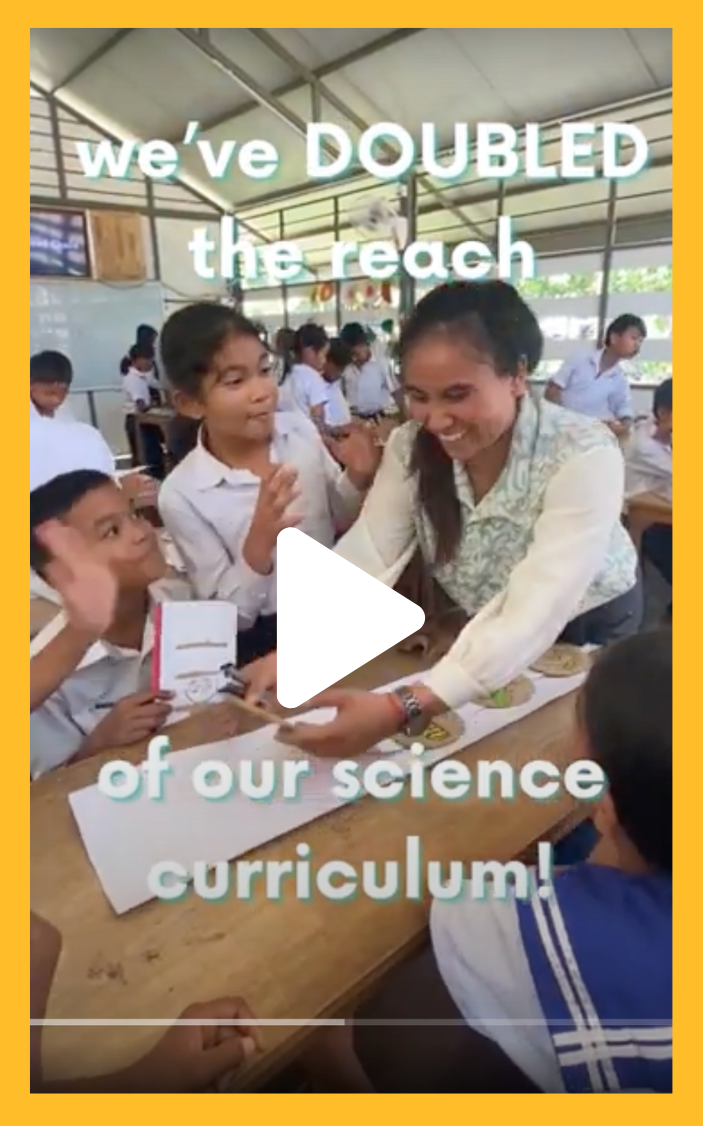Science
The PLF model works because we address both the “push” and the “pull” to school. We provide the necessary supports to push kids to school (bicycles, food, uniforms, and supplies). But we also need to “pull” them in—make them want to be there and want to learn—against all the environmental and economical factors pulling them away. We accomplish that through various extracurricular activities, including our new Science Clubs.
When we first explored piloting new science classes, we started by examining the government science curriculum. The first thing we noticed is that the curriculum is highly Cambodia-centric. The food chain, the environment, and husbandry are relevant to students across the globe, but the government curriculum confines these topics within a strictly national scope. It’s pragmatic, but it limits our students’ worldview to the point of isolation. Most of us grew up learning about polar bears, even though we’ll likely never encounter a polar bear or any arctic animal outside of a zoo. Why shouldn’t Cambodian students learn the same?


Anything we can do to put STEM subjects in front of our students at an early age pays high dividends. Cambodia needs more students choosing the science track in Grade 12 and more entering the STEM workforce. Cambodia’s own development goals recognize that the country’s future and an individual’s best career options lie in STEM fields (Ministry of Education, 2016). Our focus on all things STEM begins early on through things like Chess Clubs, eReaders, Cartography, Tech courses, and, now, Science Labs. Currently, 66% of our University Scholarships are for STEM subjects, which is no accident, and 100% due to such classes presented early in a student’s educational journey.
Click through to read more about how we are Switching On Young Brains To Science!

